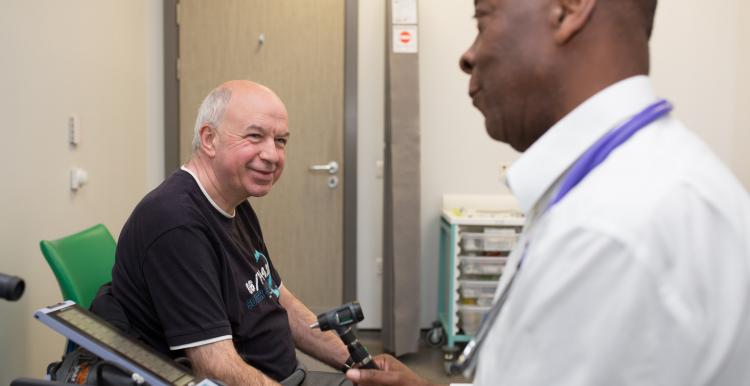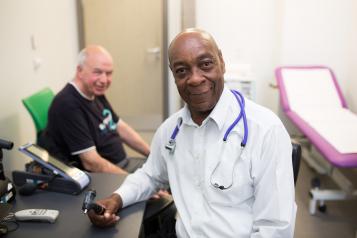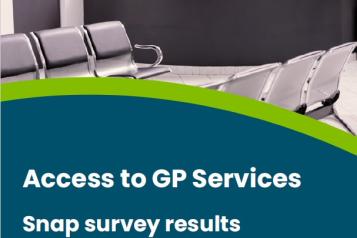How easy to use are services if you have a sensory impairment?

Following the introduction of the Accessible Information Standard in 2016 requires health and social care services to make sure that people who have a disability, impairment or sensory loss are communicated with in a way that meets their needs.
We take a look at what people with a sensory loss or impairment have told us about using services and the steps professionals can take to improve people’s experiences of care.
What should people expect?
Under the Accessible Information Standard, organisations are required need to identify, record, flag, share and meet the information and communication support needs of people with a disability, impairment or sensory loss.
What did people tell us?
No two people living with the same impairment classification are the same and patients would like health and care service providers to recognise this.
It's important that an individual's patient records accurately reflect their accessibility needs and that these can be shared effectively with other health and care service providers.
People say they can lack autonomy and confidentiality which negatively impacts their independence and cause them to feel that they have limited control over their health and care needs.
Staff awareness of sensory impairments appears to be a continuous issue, particularly especially at GP surgeries. People told us they would like more staff to ask whether they need help and how their needs can be met.
“My impairment is my deaf blindness. My disability is what other people make of it.”
Accessing appointments with a hearing impairment
People who are deaf or have a hearing impairment say they can find it challenging to use the telephone booking system used by GP surgeries, with many practices operating a triage system where the patient is called back by the GP before being able to make an appointment.
A similar difficulty is experienced by those who receive a letter from the hospital and are asked to telephone to arrange a date for their appointment.
What can providers do?
Adopt a more flexible approach to accommodate support patients with people who have a sensory impairment. For example such as:
- Providing alternatives to telephone booking systems, such as the use of email, text messaging and assistive listening services
- Give patients the option of booking a double appointment to help accommodate their communication needs
- Give people the opportunity to book their next appointment during their current appointment to relieve stress and anxiety
Accessible signposting and announcements
People with a sensory impairment told us that they often face issues being made aware that it is time for their GP appointment.
Some services practices operate with screens showing the name of the next patient and the room number, while others use a tannoy system, but rarely both. While some people find the screens useful, those with a sight impairment found them far less helpful without audio announcements because they weren’t able to see the screens.
As a result, patients spend a large portion of their wait with heightened anxiety as they wait to be called.
The GP just calls from the doorway and keeps shouting. Another patient usually nudges me.
Is your practice accessible?
Take a look at this checklist, developed by Healthwatch Slough, and use as a starting point to see how accessible your surgery is for patients with specific communication needs.
Issues with booking a British Sign Language (BSL) interpreter
Many of those who said they rely on having a BSL interpreter comment that the booking process lacks flexibility and consistency.
In some instances people told us how GP practices have said that it’s too expensive to organise communication support, asking whether people could book an interpreter themselves if the GP practice couldn’t find one.
Having access to BSL interpreters is vital for it allows patients to fully participate in their appointment with a professional and receive all the information they need without miscommunication.
“Booking a BSL interpreter takes too long - 2 week wait so I make do with writing.”


